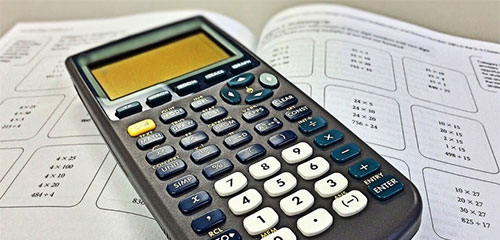Becky, a library assistant at Riccarton High School, has some helpful tips for students at exam time.
It’s that time of year again, when exams are on the horizon. Information is being thrown at you from every direction, pressure is on you to do well at your exams, and all you want is to get a good night’s sleep for once!
Well never fear, we are here to give you some tips and tricks on how to survive this season and make it through to the holidays (yippee)!
How do I start studying?
- Find a quiet space where you won’t be interrupted. It can be nice to study with friends, but make sure that you won’t distract each other when you should be focused on your work. If you think your friends will be distracting (or you think you’ll distract your friends), suggest that you study separately, and you can always meet up when exams are done. A good place to study might be your school or local library, classrooms designated for study, or a quiet room in your house, or your friend’s house.
- Set yourself rewards to keep motivated. If you’re really struggling to find motivation to study, set yourself a prize after each topic, chapter, or hour of study. A good prize might be a wee chocolate bar, a quick call with a friend or a chapter of a novel (social media is not recommended – that can easily suck away your time if you’re not careful).
- Remember to take breaks. It is very important that you give yourself some time to breathe when you’re busy studying. Go outside for some fresh air, take a walk around the block and drink lots of water.

This is my first year of NCEA, any tips for sitting the exams?
- Go to bed early the night before. A good night’s rest will help you much more than a late night cramming.
- Stay hydrated during the exam. Bring your water bottle!
- Eat a good breakfast before your exam so you have given your brain sufficient energy to think.
- Remember to take your NCEA Exam Admission Slip into every exam with you. This is so the supervisor can authorise who you are – they won’t let you into the exam if you don’t have it.
- Bring spare pens and remember your calculator if the exam requires it!

- Look through the whole exam. Make note of which questions you know you’ll be able to answer and what might be a little more challenging. (You also might just find an answer to an early question hidden in a later one).
- Double check your answers. Make sure to check over everything you’ve written to find any hidden mistakes or wrong answers.
- Stay until the end of the exam. There is nothing worse than stepping out of an exam and remembering an answer to a question you were stuck on. Don’t let that happen when there is still time left. Once you leave the exam, there is no going back.
- Read the questions and answer them. This one might seem obvious, but sometimes you might misread the question, and go off answering in a direction that the examiner did not intend. Some questions have multiple parts to them – make sure you have answered every part.
What about my social life?
Your friends will all be going through the same thing right now. And if a friend isn’t interested in studying, they should understand that you want to do well in your exams. You can always plan to meet up after exams are over and celebrate a job well done!
Most importantly, remember that there is life after exams, and there is life after failure. Study hard and try your best, but don’t beat yourself up if you don’t do as well as you’d hoped. There will always be a next step for you.

More tips
- Check out the Exam Preparation page.
- Take a look at the exam prep info on the Riccarton High School Library website.
- See what foods the BBC says will help ‘boost your brain power‘.
- Read and listen to prize-winning teacher and author Karen Boyes’ interview on Radio New Zealand about how to ‘Study Smart’.









